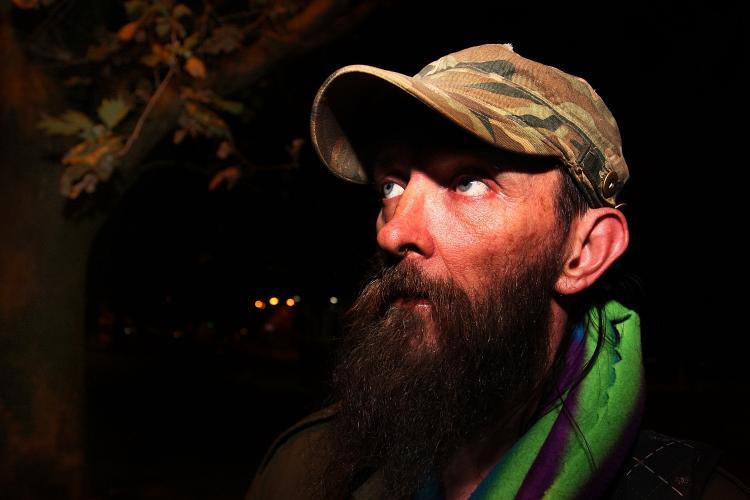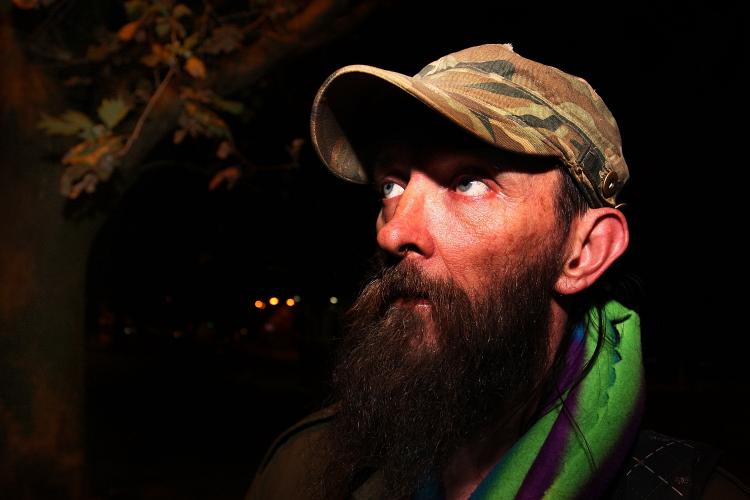VANCOUVER—Effectively housing the homeless is the focus of a new four-year research demonstration project—the first of its kind in Canada—taking place in five cities across the country.
What’s different about the initiative is that it will provide housing first, whereas conventional projects move the homeless through different “levels” such as medical programs to treat addiction and mental illness before setting them up in housing.
Sponsored by the Mental Health Commission of Canada in partnership with Health Canada, the $110-million multi-site trial will take place in Vancouver, Winnipeg, Toronto, Montreal, and Moncton.
Julian Somers, associate professor at Simon Fraser University Faculty of Health Sciences, is heading up the Vancouver site, whose four-year budget is about $23.5 million.
Of the 500 participants in Vancouver, 300 will be housed and receive rental support as well as ongoing home-based services to match their individual needs.
“There is a very intensive clinical and social-support component to this study, so people who have different levels of health, mental health, and social service needs will have those addressed. Those are the components of the study that are being delivered alongside housing,” Somers says.
The goal is to take the information gleaned and make it available to be used in policy and planning decisions, ultimately improving the lot of the homeless.
“What we’re doing in these five cities scattered across the country is designed to shed light on problems that are prevalent in every part of the country, and produce information relevant to those problems—not simply to solve the problems of Vancouver, Winnipeg, Toronto, Montreal, and Moncton.”
Somers stresses that none of the components of the study are forced on the participants, and individuals can choose the services they want.
The “housing first” approach has had some success in a number of U.S. cities. The U.S. Department of Housing and Urban Development attributes an unprecedented 30 percent decline in the number of homeless no longer living on the streets or in shelters to the housing first movement.
Pioneered by Dr. Sam Tsemberis of the Department of Psychiatry of the New York University School of Medicine in the 1990s, housing first is based on the notion that housing is a basic human right and therefore should not be denied to anyone—even those abusing alcohol or other substances.
The premise is that being housed while receiving needed supports provides stability for homeless individuals, which in turn promotes self-sufficiency and accountability, giving participants a greater chance of success.
“We know,” says Somers, “that for the vast majority of people who are homeless with mental illnesses, that they will welcome the opportunity to have a home, and they will also welcome the opportunity to have relationships with caregivers who understand their needs and are capable of significantly improving their quality of life.”
Somers says relatively little research has been done in Canada on the “unmet needs, the housing needs,” of the homeless.
Michael Krausz, professor of psychiatry at University of British Columbia and co-investigator on the project, says Canada’s homeless are not well served by the health care system, which is designed to help people who have been integrated, not those on the margins of society.
He believes that if the homeless received better health support, their future care costs would be significantly reduced since they would be healthier and able to take better care of themselves.
“Though we don’t know much about the homeless, they make up 10 percent of all visits to the emergency room at St. Paul’s Hospital in downtown Vancouver. That’s about 1,800 per year,” says Krausz, who works at St. Paul’s.
Regional and provincial organizations responsible for housing, health, and social services were consulted for the project. The research team has also engaged in numerous consultations with homeless individuals in many different situations in greater Vancouver, seeking their suggestions and input.
“We’re trying to, as quickly as possible, reinforce that the individual’s wishes, the individual’s direction, are key to our ability to support them, and it is a profound change,” Somers says.
So much so that “it may take a while for this to sink in, because [the homeless] are so accustomed to not only marginalization, but betrayal and abuse.”
Somers has more than a passing acquaintance with addiction and homelessness. His father, an alcoholic, lived in a rooming house in Vancouver’s Downtown Eastside. He ultimately developed Korsakoff’s Syndrome due to alcohol poisoning and died in his mid-60s.
By accepting the newly-housed individuals into their midst, the broader community can play a part too, says Somers, adding that he finds it heartening that in general, the public views homelessness as unacceptable and a serious problem that “needs to be collectively solved.”
“I find it encouraging that that undercurrent of shared responsibility is there, and hopefully we’ll get to learn a few things that will not only help us feel better with homelessness but help us feel better with other things that affect us as a community.”
What’s different about the initiative is that it will provide housing first, whereas conventional projects move the homeless through different “levels” such as medical programs to treat addiction and mental illness before setting them up in housing.
Sponsored by the Mental Health Commission of Canada in partnership with Health Canada, the $110-million multi-site trial will take place in Vancouver, Winnipeg, Toronto, Montreal, and Moncton.
Julian Somers, associate professor at Simon Fraser University Faculty of Health Sciences, is heading up the Vancouver site, whose four-year budget is about $23.5 million.
Of the 500 participants in Vancouver, 300 will be housed and receive rental support as well as ongoing home-based services to match their individual needs.
“There is a very intensive clinical and social-support component to this study, so people who have different levels of health, mental health, and social service needs will have those addressed. Those are the components of the study that are being delivered alongside housing,” Somers says.
The goal is to take the information gleaned and make it available to be used in policy and planning decisions, ultimately improving the lot of the homeless.
“What we’re doing in these five cities scattered across the country is designed to shed light on problems that are prevalent in every part of the country, and produce information relevant to those problems—not simply to solve the problems of Vancouver, Winnipeg, Toronto, Montreal, and Moncton.”
Somers stresses that none of the components of the study are forced on the participants, and individuals can choose the services they want.
The “housing first” approach has had some success in a number of U.S. cities. The U.S. Department of Housing and Urban Development attributes an unprecedented 30 percent decline in the number of homeless no longer living on the streets or in shelters to the housing first movement.
Pioneered by Dr. Sam Tsemberis of the Department of Psychiatry of the New York University School of Medicine in the 1990s, housing first is based on the notion that housing is a basic human right and therefore should not be denied to anyone—even those abusing alcohol or other substances.
The premise is that being housed while receiving needed supports provides stability for homeless individuals, which in turn promotes self-sufficiency and accountability, giving participants a greater chance of success.
“We know,” says Somers, “that for the vast majority of people who are homeless with mental illnesses, that they will welcome the opportunity to have a home, and they will also welcome the opportunity to have relationships with caregivers who understand their needs and are capable of significantly improving their quality of life.”
Somers says relatively little research has been done in Canada on the “unmet needs, the housing needs,” of the homeless.
Michael Krausz, professor of psychiatry at University of British Columbia and co-investigator on the project, says Canada’s homeless are not well served by the health care system, which is designed to help people who have been integrated, not those on the margins of society.
He believes that if the homeless received better health support, their future care costs would be significantly reduced since they would be healthier and able to take better care of themselves.
“Though we don’t know much about the homeless, they make up 10 percent of all visits to the emergency room at St. Paul’s Hospital in downtown Vancouver. That’s about 1,800 per year,” says Krausz, who works at St. Paul’s.
Regional and provincial organizations responsible for housing, health, and social services were consulted for the project. The research team has also engaged in numerous consultations with homeless individuals in many different situations in greater Vancouver, seeking their suggestions and input.
“We’re trying to, as quickly as possible, reinforce that the individual’s wishes, the individual’s direction, are key to our ability to support them, and it is a profound change,” Somers says.
So much so that “it may take a while for this to sink in, because [the homeless] are so accustomed to not only marginalization, but betrayal and abuse.”
Somers has more than a passing acquaintance with addiction and homelessness. His father, an alcoholic, lived in a rooming house in Vancouver’s Downtown Eastside. He ultimately developed Korsakoff’s Syndrome due to alcohol poisoning and died in his mid-60s.
By accepting the newly-housed individuals into their midst, the broader community can play a part too, says Somers, adding that he finds it heartening that in general, the public views homelessness as unacceptable and a serious problem that “needs to be collectively solved.”
“I find it encouraging that that undercurrent of shared responsibility is there, and hopefully we’ll get to learn a few things that will not only help us feel better with homelessness but help us feel better with other things that affect us as a community.”





